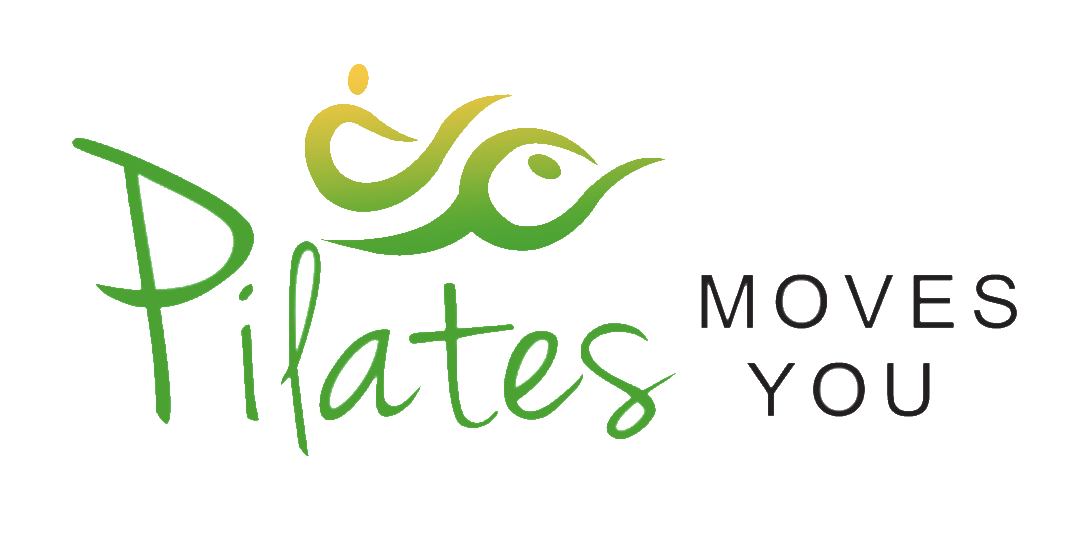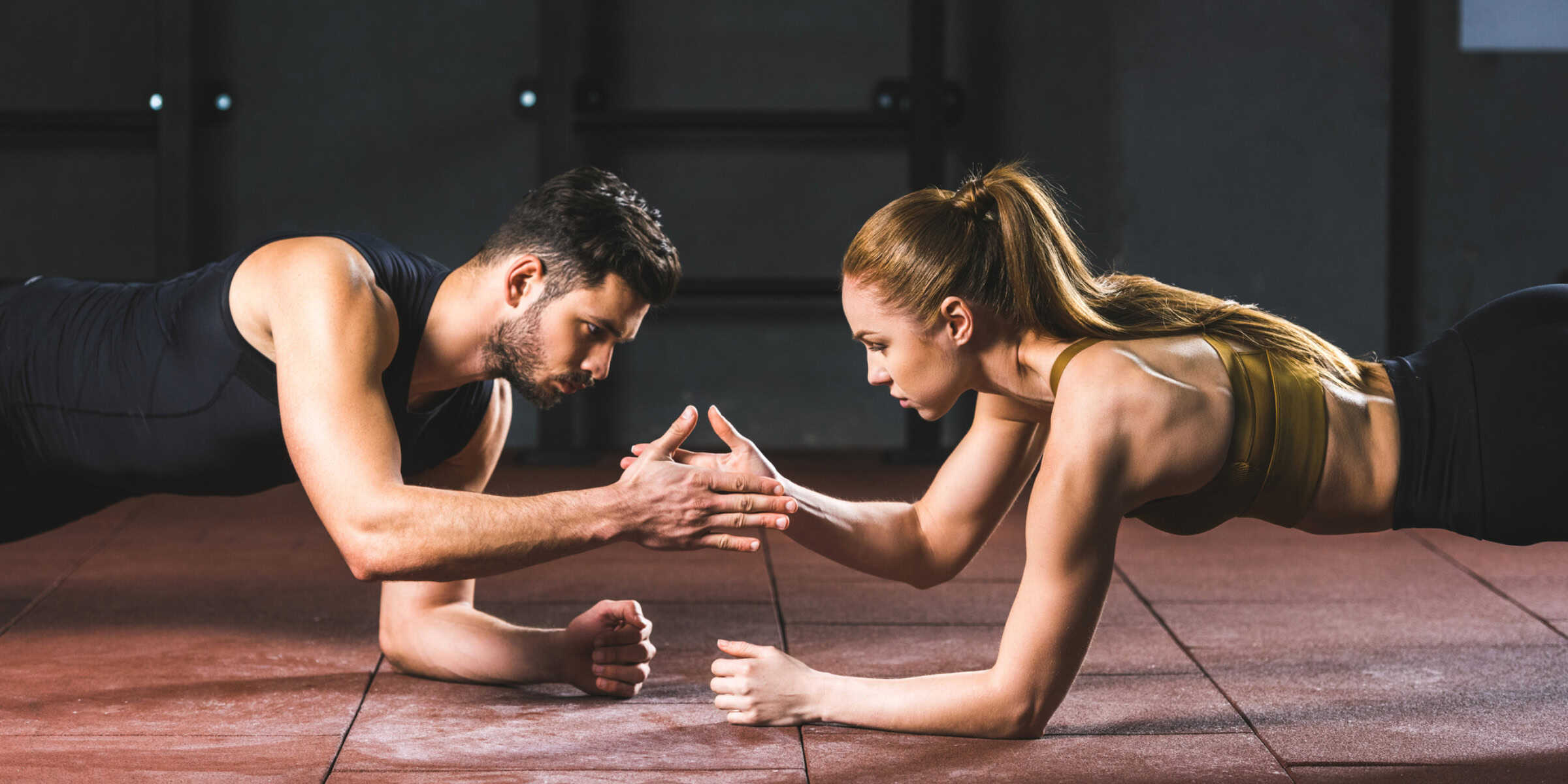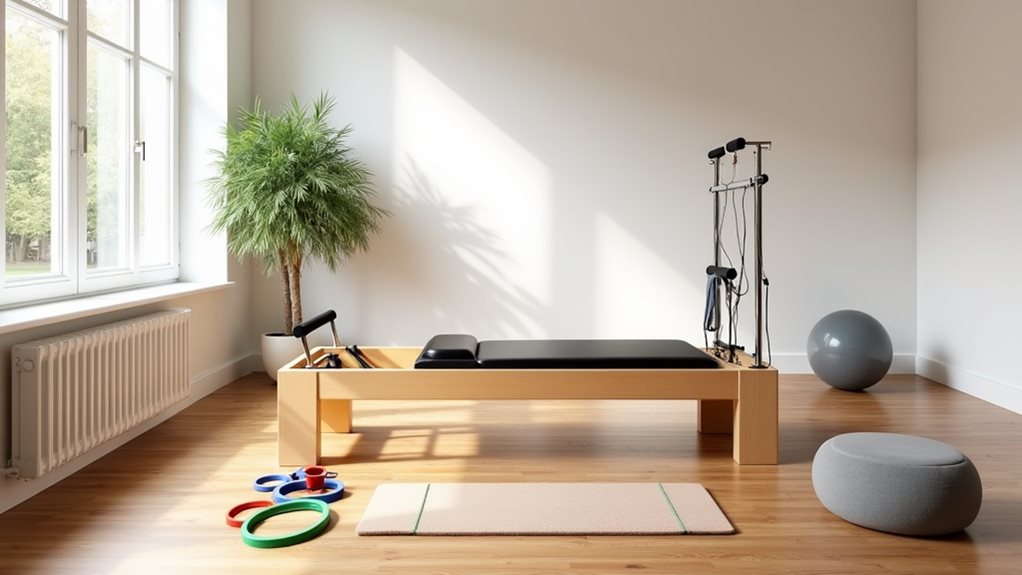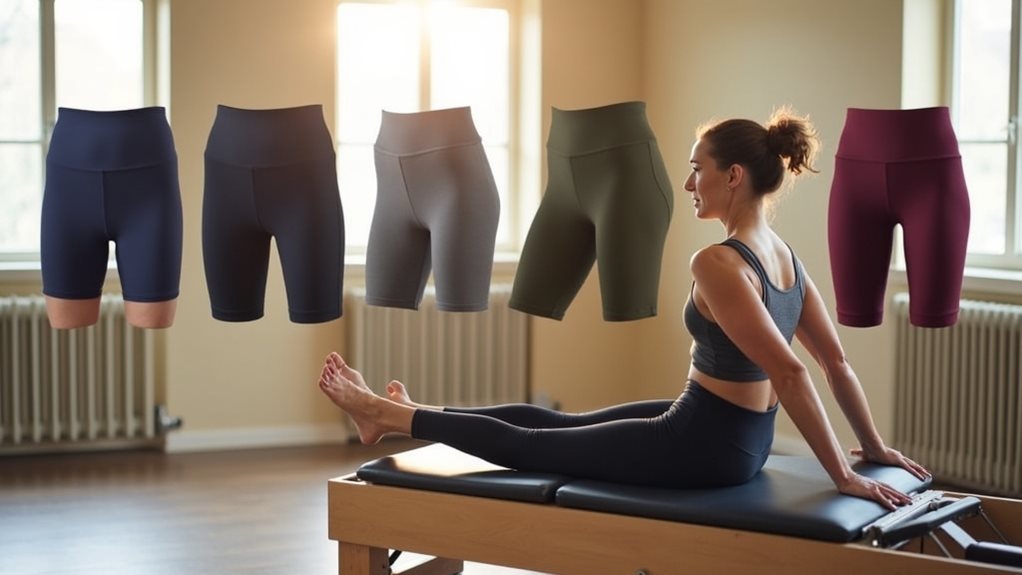Are you an athlete looking to enhance your performance and take your workouts to the next level? Look no further than Pilates.
This dynamic form of exercise offers a wide range of benefits that can transform your athletic abilities. From improved core strength and stability to increased flexibility and range of motion, Pilates targets key areas that are crucial for athletes.
In this article, we will explore the numerous benefits of Pilates, comparing it to other workouts and highlighting why it should be a part of every athlete’s training regimen.
Improved Core Strength and Stability
You’ll notice a significant improvement in your core strength and stability when you incorporate Pilates into your workout routine. Pilates for athletes is not just about building muscle, it’s about improving performance and preventing injuries.
By focusing on the deep muscles of your abdomen, lower back, and pelvis, Pilates helps to strengthen your core, which is essential for stability and balance during athletic movements. This increased core strength translates into more power and control in your sport, allowing you to perform at your best.
In addition to improved core strength, Pilates also enhances your overall stability. The exercises in Pilates require you to engage your core muscles while performing movements, which helps to stabilize your spine and pelvis. This stability is crucial for athletes as it reduces the risk of injuries, especially in high-impact sports. With a strong and stable core, you’ll be less likely to experience back pain or suffer from other common injuries.
Transitioning into the next section about increased flexibility and range of motion, Pilates also focuses on stretching and lengthening the muscles. This helps to improve flexibility and range of motion, allowing you to move more freely and efficiently in your sport. So not only will you experience a stronger and more stable core, but you’ll also gain the flexibility needed to perform at your peak level.
Increased Flexibility and Range of Motion
Improve your flexibility and range of motion with Pilates, allowing you to move more freely in your athletic pursuits. Pilates focuses on stretching and lengthening muscles, which can lead to increased flexibility. This is essential for athletes as it allows for a greater range of motion in the joints, enabling them to perform movements with ease and efficiency. With improved flexibility, athletes can achieve better athletic performance by maximizing their potential in various sports.
Additionally, Pilates can help reduce muscle soreness. By incorporating dynamic stretching and controlled movements, Pilates helps to increase blood flow to the muscles, which aids in muscle recovery and reduces post-workout soreness. This is particularly beneficial for athletes who engage in high-intensity training or participate in sports that require repetitive movements.
Furthermore, Pilates enhances body awareness and alignment. Through its focus on precise movements and controlled breathing, Pilates helps athletes develop a better understanding of their body and how it moves. This increased body awareness can lead to improved posture, alignment, and coordination, which are crucial for optimal athletic performance.
In summary, Pilates offers numerous benefits for athletes, including improved flexibility, increased range of motion, reduced muscle soreness, and enhanced body awareness. By incorporating Pilates into their training regimen, athletes can unlock their full potential and enjoy greater freedom in their athletic pursuits.
Enhanced Body Awareness and Alignment
Get ready to experience a heightened sense of body awareness and improved alignment through Pilates. This form of exercise is known for its ability to enhance body control and postural correction. Pilates focuses on engaging the core muscles, which helps to stabilize and align the body. By strengthening the core, you will develop a better understanding of how your body moves and functions.
One of the key benefits of Pilates for athletes is that it promotes body awareness. As you become more in tune with your body, you will be able to make subtle adjustments to your alignment and movement patterns. This increased awareness can lead to improved performance in your chosen sport or activity, as you will be able to move with greater efficiency and precision.
Pilates also emphasizes proper alignment, which is crucial for athletes. By practicing exercises that encourage correct posture and alignment, you can prevent injuries and improve your overall performance. When your body is aligned properly, you are able to generate more power, reduce strain on your joints, and move with greater ease.
Incorporating Pilates into your training routine can help you develop a strong foundation of body awareness and alignment. This will not only enhance your performance as an athlete but also reduce the risk of injuries.
Speaking of injuries, the next section will explore how Pilates can be beneficial for injury prevention and rehabilitation.
Injury Prevention and Rehabilitation
Incorporating Pilates into your training routine can help in preventing and rehabilitating injuries. Pilates is a low-impact exercise method that focuses on strengthening the core muscles, improving flexibility, and enhancing overall body awareness. By engaging in Pilates, athletes can develop better body mechanics, which in turn can reduce the risk of injuries.
One of the key benefits of Pilates for injury prevention is its emphasis on proper alignment and posture. The exercises in Pilates promote correct body positioning, which helps to alleviate stress on joints and muscles. This can prevent overuse injuries and reduce the likelihood of strains or sprains.
Additionally, Pilates can be an effective rehabilitation tool for athletes recovering from injuries. The controlled movements and emphasis on core stability can aid in the recovery process by strengthening weak or injured areas. Pilates can also help to improve flexibility, which is crucial for preventing future injuries.
Transitioning into the subsequent section about improved balance and coordination, Pilates can also enhance these aspects of athletic performance. By improving body awareness, alignment, and strength, athletes can better control their movements and maintain balance during dynamic activities.
Improved Balance and Coordination
Enhancing balance and coordination is one of the key advantages of incorporating Pilates into your training routine. Pilates exercises for agility and speed can help athletes improve their overall balance and coordination, which are essential skills in many sports.
By focusing on core strength and stability, Pilates helps athletes develop better proprioception and reaction time, allowing them to move more efficiently and effectively on the field or court.
Pilates is known for its emphasis on proper alignment and body awareness, which are critical for maintaining balance. Through a series of controlled movements and exercises, athletes can improve their ability to maintain balance and make quick adjustments when needed. This is especially beneficial for sports that require sudden changes in direction or quick footwork.
Additionally, Pilates helps athletes develop better coordination by targeting specific muscle groups and training them to work together. The exercises in Pilates often involve complex movements that require coordination between different parts of the body. This improves athletes’ overall coordination and helps them move more fluidly and efficiently.
Incorporating Pilates into your training routine can greatly enhance your balance and coordination, giving you a competitive edge on the field or court. In the next section, we will discuss how Pilates can also help increase your muscular endurance.
Increased Muscular Endurance
Now that we have explored how Pilates improves balance and coordination, let’s dive into another key benefit for athletes: increased muscular endurance.
Pilates is renowned for its ability to enhance muscle toning, making it an ideal workout for athletes looking to improve their athletic performance. Through a series of controlled, targeted movements, Pilates engages and strengthens the muscles throughout the body. This comprehensive approach ensures that no muscle group is left untouched, leading to improved endurance during physical activities.
Unlike other workouts that may focus on isolated muscle groups, Pilates works to create a balanced and functional body. This is achieved through a variety of exercises that target multiple muscle groups simultaneously. By incorporating a combination of strength training, flexibility, and core stability, Pilates helps athletes build a solid foundation of strength and endurance.
Benefits of increased muscular endurance include reduced risk of injury, enhanced stamina, and improved overall performance. As muscles become stronger and more resilient, athletes can push their limits further, achieving new personal bests and reaching their athletic goals.
Incorporating Pilates into your training regimen can provide the freedom to excel in your chosen sport. It’s time to take your athletic performance to new heights by exploring how Pilates can benefit you.
Transition: As we delve into the next section on reduced stress and improved mental focus, let’s explore how Pilates can help you achieve a state of mind-body balance.
Reduced Stress and Improved Mental Focus
Achieve a state of mind-body balance and reduce stress while improving your mental focus with Pilates. Pilates is not just about physical strength and flexibility; it also emphasizes mindfulness training and stress relief techniques. By practicing Pilates, you can tap into a deeper level of awareness and learn to be present in the moment.
This mindfulness training allows you to let go of external distractions and focus on your body’s movements, creating a sense of calm and relaxation.
In addition to reducing stress, Pilates can also improve your mental focus. The precise and controlled movements required in Pilates require concentration and mental engagement. By focusing on your breath and the alignment of your body, you can develop a heightened sense of awareness and concentration that can carry over into other areas of your life, including your athletic performance.
Research has shown that mindfulness practices like Pilates can have a positive impact on mental health, reducing symptoms of anxiety and depression. By incorporating Pilates into your workout routine, you can not only improve your physical fitness but also experience a sense of mental well-being.
Customizable Workouts for Specific Athletic Needs
You can customize your Pilates workouts to meet your specific athletic needs and goals. Pilates offers a wide range of tailored exercises that can help athletes optimize their performance.
Whether you are a runner looking to improve your speed and endurance or a golfer wanting to enhance your swing, Pilates can be adapted to target the specific muscles and movements required for your sport.
Here are four ways in which Pilates can be customized to meet your athletic needs:
- Targeted muscle activation: Pilates exercises can focus on activating and strengthening specific muscle groups that are essential for your sport. For example, a basketball player can work on exercises that target the leg muscles used for jumping and quick movements.
- Flexibility and mobility training: Pilates includes exercises that improve flexibility and mobility, which are crucial for athletes to prevent injuries and enhance performance. Tailored workouts can address specific areas of tightness or weakness, such as hip mobility for a tennis player.
- Core strength and stability: Pilates is renowned for its emphasis on core strength and stability. By customizing your workouts, you can prioritize exercises that strengthen your core muscles, providing a solid foundation for all your athletic movements.
- Balance and coordination: Pilates exercises can enhance balance and coordination, which are essential for athletes in various sports. Tailoring your workouts can help you focus on exercises that challenge and improve these skills.
By customizing your Pilates workouts, you can optimize your athletic performance by targeting specific muscles, improving flexibility and mobility, strengthening your core, and enhancing balance and coordination.
Final Thoughts
If you’re an athlete looking to take your performance to the next level, incorporating Pilates into your training routine is definitely worth considering. With its focus on core strength, flexibility, body awareness, and injury prevention, Pilates offers a range of benefits that can enhance your overall athletic performance.
By improving your balance, coordination, muscular endurance, and mental focus, you’ll not only be better equipped to excel in your chosen sport, but you’ll also reduce the risk of injury and experience reduced stress levels.
So why not give Pilates a try and see the difference it can make in your athletic journey?




